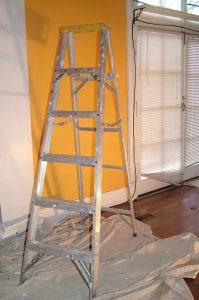A number of low-income tenants in Yarmouth, about an hour south of Boston, near Hyannis, are protesting an asbestos abatement project they fear could pose undue risk to their health.

Our Boston asbestos exposure attorneys understand that a number of tenants are elderly and disabled and a number are children under the age of 12.
The safe removal of asbestos is a major issue in Massachusetts for several reasons, namely:
- There is so much of it;
- Proper removal is expensive.
Asbestos can be found in a long list of home products, including insulation, flooring, roofing, joint compounds, decorative plasters, wallboards, mastics, fireproofing and ceiling tiles.
The Massachusetts Environmental Protection Agency generally holds that if these materials are in good condition, they should be left alone, as they will pose little to no risk. The danger is when the fibers in these materials are disturbed and become airborne. If people nearby aren’t equipped with proper respiratory protection, those fibers become snagged in delicate lung tissue and cause severe to terminal illnesses such as asbestosis and mesothelioma.
The sole case of these ailments is asbestos exposure. Despite what many asbestos defendants attempt to claim in court, there is no such thing as a safe amount of exposure to this fiber. Although asbestos ailments are deadly, they lie dormant for decades. When they do manifest, the progression tends to be rapid and decline is swift.
That’s why when asbestos renovation work is to be done in Massachusetts, it must be conducted according to 310 CMR 7.15. This statute requires that all owners, renovators, contractors and plumbers have to determine asbestos materials at a site prior to conducting any work.
If asbestos is located, it’s strongly recommended that only a certified Division of Occupational Safety worker perform that work, as there are a laundry list of operational and disposal requirements that must be met in order for the removal to be safely carried out.
In Yarmouth, residents say they received a short letter explaining that their flooring would need to be replaced and that they could “expect some debris.” No mention was made in that letter that the vinyl flooring to be replaced actually contained asbestos. Some residents, however, were aware of this fact and are fighting back to raise awareness within the complex and also to encourage the owners to reconsider the renovations, considering the floors, while stylistically outdated, are not in bad condition.
The Boston-based management company said the work area within the one-bedroom units would be blocked off with plastic and tenants would be given the option to remove their food while work was underway.
Tenants were offered to stay in the community day room while asbestos abatement was occurring, but no overnight accommodations were offered.
Some residents were advised by the EPA to bag their belongings prior to the abatement.
But it appears the work will go on, at least in 42 units of the 150-unit complex.
If you or a loved one is diagnosed with mesothelioma in New England, call for a free and confidential appointment at (617) 777-7777.
Additional Resources:
South Yarmouth tenant protests asbestos removal in apartment, Feb. 21, 2013, By Susan Vaughn, The Register
More Blog Entries:
Asbestos Bill Would Undercut Worker Safety, Feb. 7, 2013, Boston Mesothelioma Lawyer Blog
 Mesothelioma Lawyers Blog
Mesothelioma Lawyers Blog

